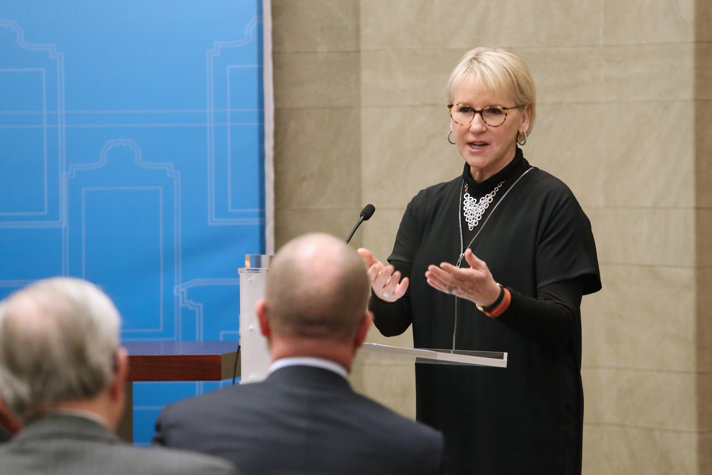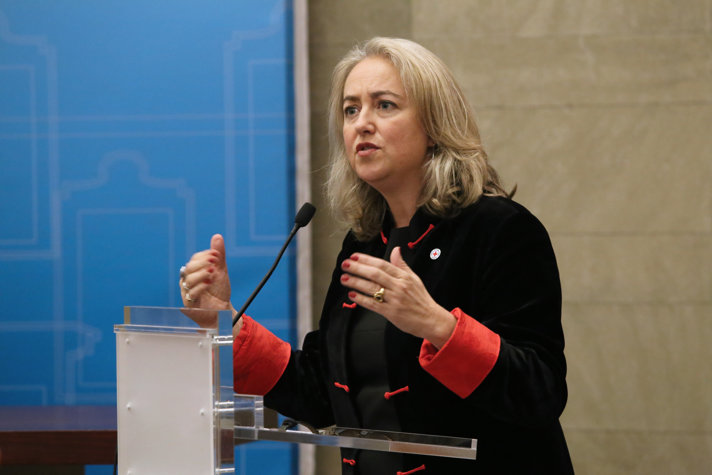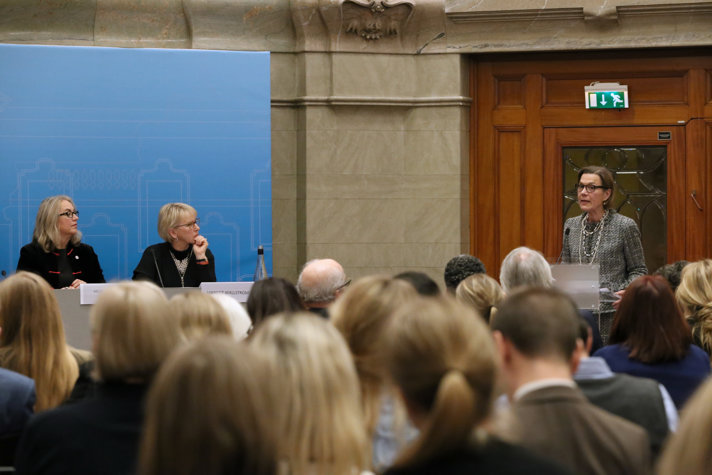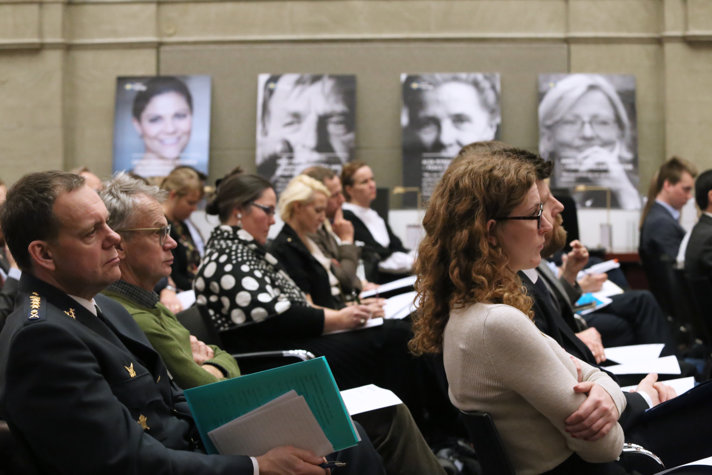Sweden in the UN Security Council – humanitarian law and protection of health care
Published
On 1 February 2018, International Law Day hosted by the Ministry for Foreign Affairs (MFA) brought together roughly 100 guests from academia, civil society, the justice system, embassies and government agencies. The theme of the day was ‘Sweden, the Security Council and international law’. One focal point was Sweden’s efforts in the United Nations Security Council to improve the protection of health care in armed conflict. Panelists included Minister for Foreign Affairs Margot Wallström and Dr Helen Durham, Director of International Law at the International Committee of the Red Cross (ICRC).
International law and the UN Security Council
The Minister for Foreign Affairs reaffirmed that international law is at the core of Swedish foreign policy and Sweden's engagement in the UN Security Council. During its first year in the Security Council, Sweden worked to improve the exchange of information between the Security Council and UN bodies, the ICRC and other civil society stakeholders.
"We are facing many challenges, but Sweden is beginning its second year in the Security Council with determination and the goal to achieve concrete results. Sweden has been working in the Security Council to enhance protection of civilians and health care. These are two areas where we see violations of fundamental humanitarian principles," said Ms Wallström in her speech.
Dr Helen Durham, who took part in the first panel debate, urged Sweden to work to ensure that the Security Council does not introduce new terms into the text of its resolutions that could be confused with established humanitarian law terms.
"We must remember that our humanitarian engagement is the very basis of humanitarian law. In the current climate, the principle of impartiality is more important than ever if the ICRC is to be a humanitarian player," said Dr Durham.
The Principal Legal Adviser on International Law at the Ministry for Foreign Affairs, Marie Jacobsson, was also on the panel.
"For international law to have an impact, it must be supported by political will, active diplomacy, political and diplomatic courage and an eternal struggle," said Ms Jacobsson.
Health care in the firing line
The second panel focused on the protection of health care in armed conflict. The panelists were MFA Director-General for Legal Affairs Elinor Hammarskjöld, Professor Jann Kleffner from the Swedish Defence University and Chief of Military Medical Services of the Swedish Armed Forces Claes Ivgren. Ms Hammarskjöld highlighted that around the world humanitarian law is being violated daily, and referred to the situation in Syria and Yemen as an example.
"Health care has far too often been the target of attacks, including in Syria and Yemen. More than 160 direct or indiscriminate attacks on health facilities in Yemen have been reported to the ICRC since the conflict began. International humanitarian law provides rules to protect access to health care in armed conflict. The rules are binding on states and non-state armed groups. Health care must be provided based on need – those in greatest need of care should receive care first, no matter who they are," said Ms Hammarskjöld.
Professor Kleffner addressed the complex international law issues that arise when medical transport and hospitals are used for military purposes, and how this leads to difficult decisions.
Mr Ivgren explained that the wording of resolutions is crucial for the practical implementation of the UN's mandate in international peace operations. Work on the ground can be more focused and effective if the wording of the mandate is more specific. General wording on protection of human rights should be accompanied by more detailed examples and explanations of what personnel on the ground should actually protect. Operations could support and provide health care in conflict areas if this is stated in the UN mandate.





 X
X